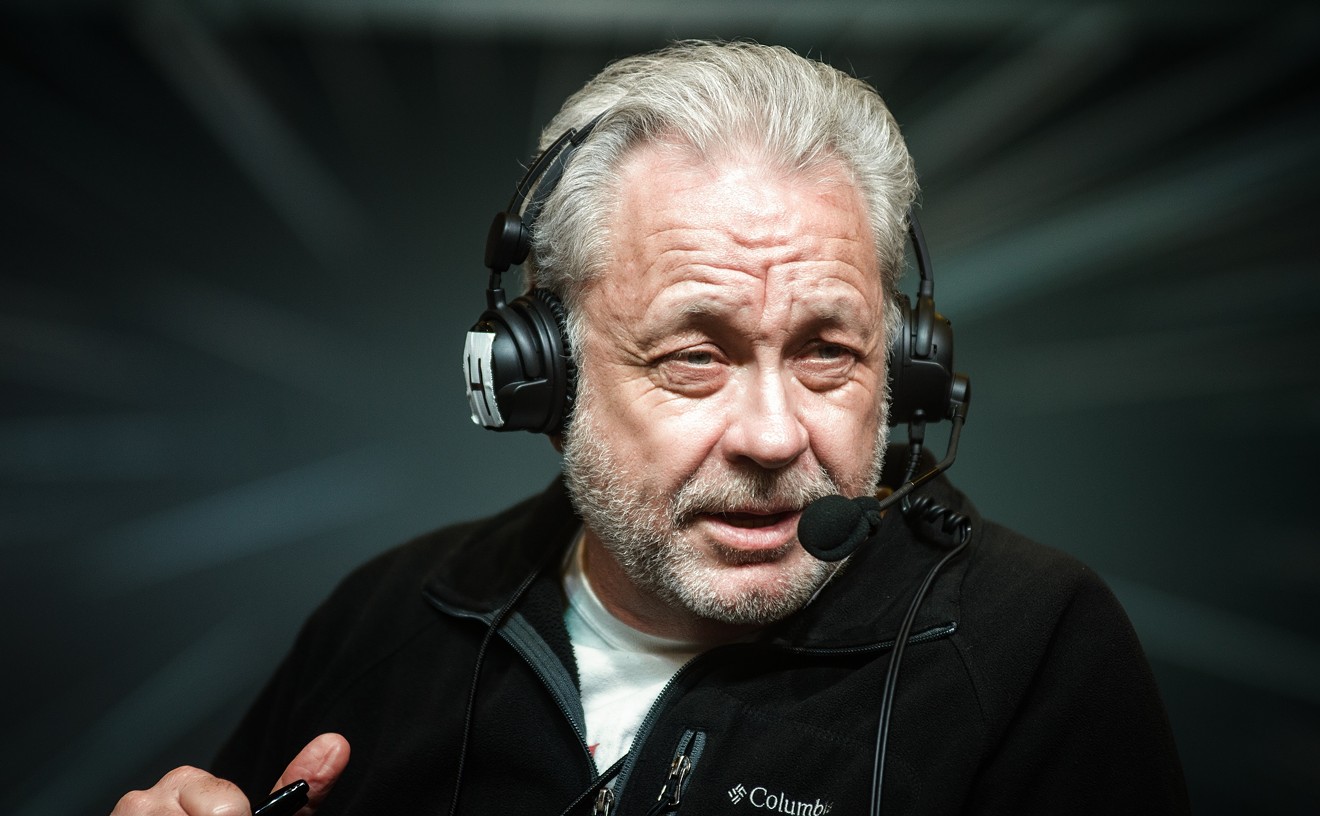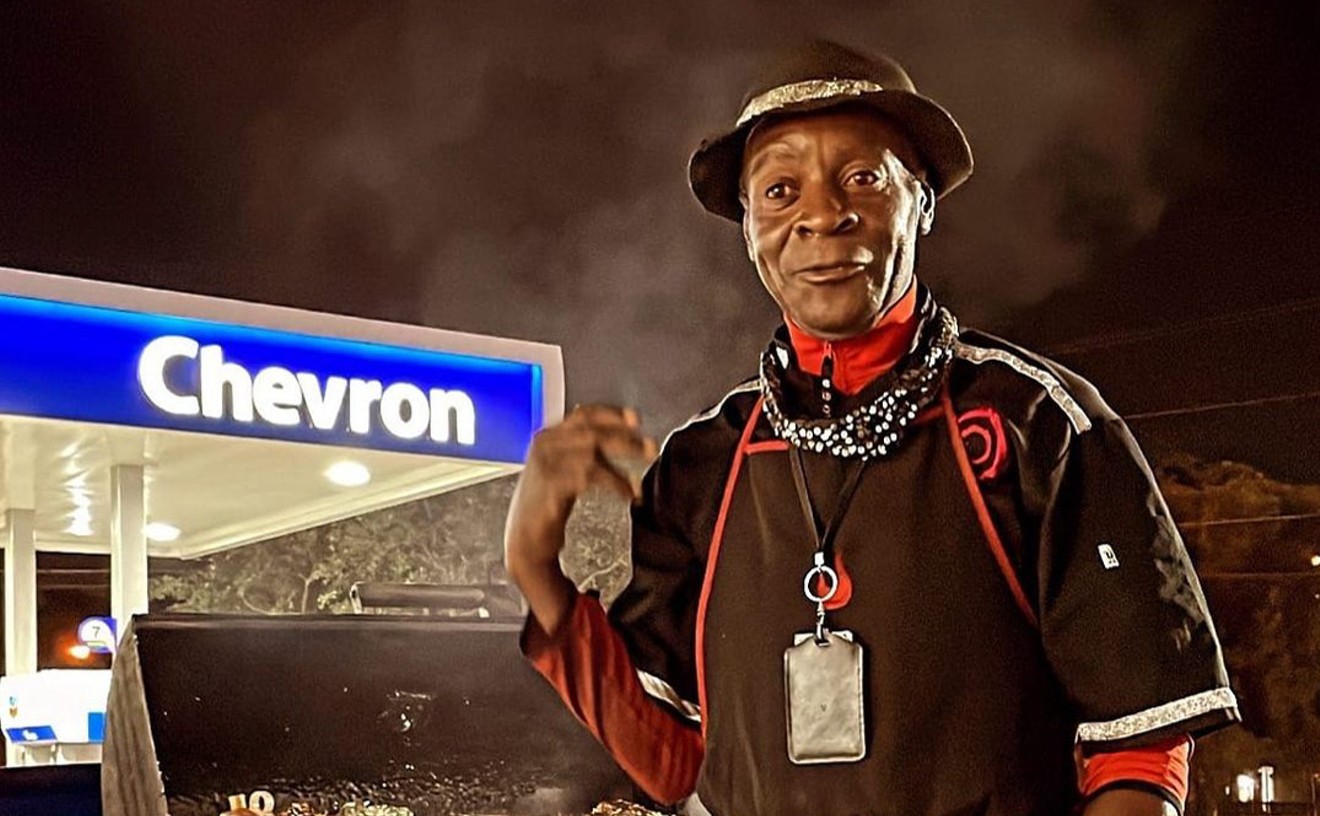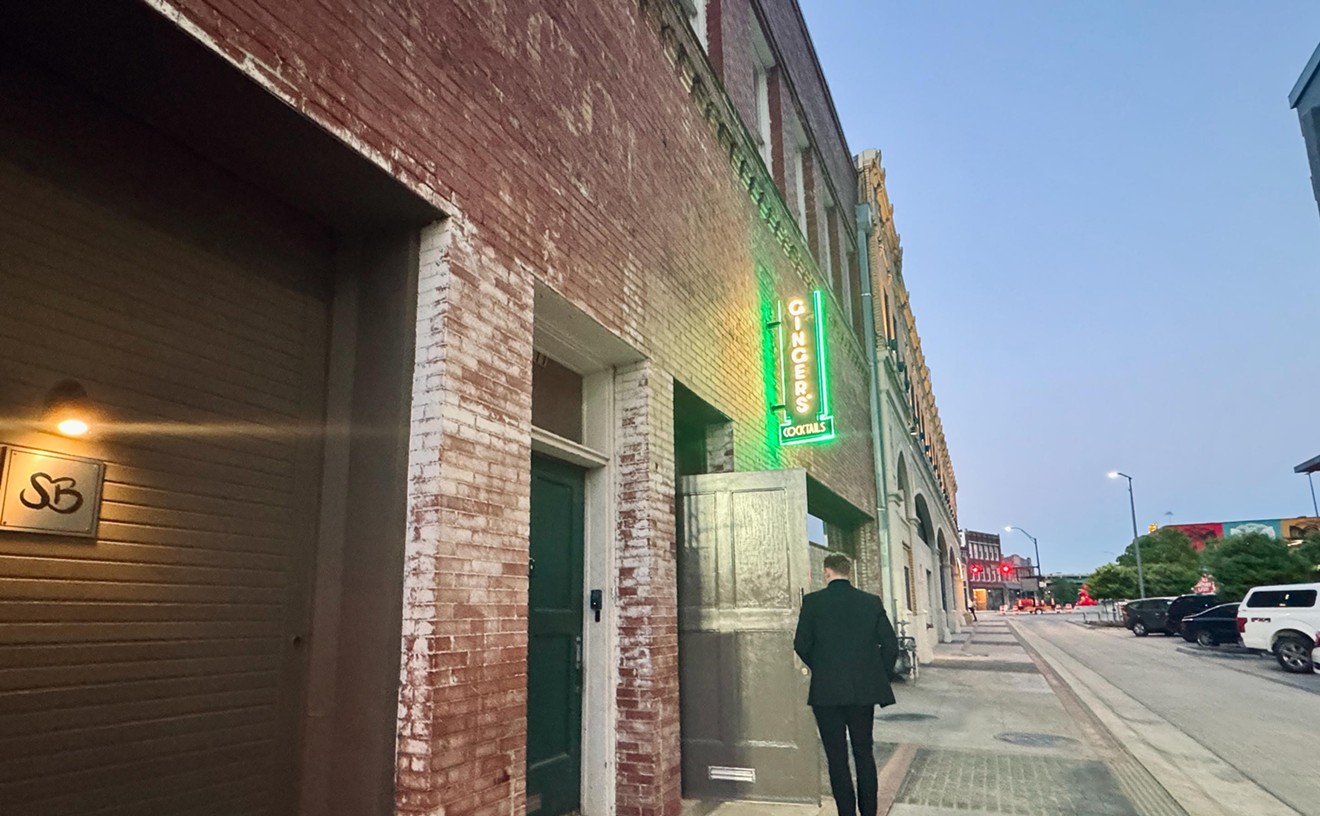Stop me if you've heard this one before: A lonely dwarf, a wisecracking Cuban-American and a grieving mother walk into each other's lives, laugh together, cry together, grow, change and heal each other's emotional wounds. Cue Sundance prizes, Miramax pickup, torrent of glowing reviews and a surprisingly robust indie box-office. The movie is The Station Agent, and it was the sort of exercise in forced whimsy and catharsis that managed to coast by on the charm of its performers, so long as you didn't stop to ponder why the film's writer-director, Tom McCarthy, had his characters descend into near-hysterics upon their first encounter with Peter Dinklage's vertically challenged train hobbyist. Clearly a believer in leaving well enough alone, McCarthy has, for his second feature, made another movie about an unlikely threesome—except this time, he's decided to get political; he's made a liberal-guilt-trip movie about first-world ignorance of third-world culture.
Like The Station Agent, The Visitor opens in a state of mourning, with 62-year-old economics professor Walter Vale (Richard Jenkins) staring longingly out the window of his Connecticut home, wine glass in hand, while a solemn piano sonata plays on the soundtrack. Even before we know what exactly Walter has lost, we know he's lost something; like almost every other scene in the movie, this one wears its meaning on its sleeve. Then Walter reluctantly travels to New York to give a paper at an NYU conference, only to find his long-untended Manhattan apartment occupied by...a young Syrian emigré, Tarek (Haaz Sleiman), and his Senegalese girlfriend, Zainab (Danai Gurira), who have been swindled into thinking the place is theirs. At first, Walter kicks his unexpected houseguests to the curb; but, of course, there wouldn't be a movie here if Walter didn't think better of that decision and tell the couple—what the hell—that they can stay with him for as long as they need to. That's when things take a turn for the pious.
I'd call Walter's meet-cute with Tarek and Zainab accidental, but pretty much nothing in The Visitor happens by accident. It's a screenplay that seems to have sprung from one of those how-to screenwriting seminars you see advertised in the back of movie magazines. That mournful piano music? It turns out to be a performance by Walter's late wife, a classical concert pianist. And Tarek, wouldn't you know, is a musician too, only instead of piano he plays the African drum. And before long, he's teaching Walter how to play. And not long after that, this supposed East Coast intellectual who lectures at seminars on "economic growth in developing nations" is chowing down on his first-ever shawarma and stopping on his lunch break to listen—really listen—to the young black kids beating on their plastic buckets in Washington Square Park.
So, East meets West, and everyone is a little bit the better for it—until the ugly face of post-9/11 racial profiling intrudes, landing the undocumented Tarek in a subcontracted government detention center where the walls are lined with murals of the Statue of Liberty and posters that say things like "The strength of America...America's immigrants." Irony alert! That's Walter's opportunity—and ours—to become outraged that such things can happen in the supposed Land of the Free (who knew?), while Tarek and Zainab marvel, wide-eyed, at the fact that some rich old white dude could possibly care about their well-being.
You have to hand it to McCarthy: He's nothing if not an equal-opportunity patronizer. When Tarek's doting mom, Mouna (played by the excellent Israeli-Arab actress Hiam Abbass), shows up and sees Zainab for the first time, she turns to Walter and exclaims: "She's very black!" (Even dark-skinned people, you see, have their prejudices.) Then everyone piles onto the Staten Island Ferry for a tour of relevant New York landmarks—Ellis Island, Ground Zero—just in case we didn't get the point that this is a movie about liberty under siege. Like every other Muslim character in the film, Mouna practically walks on water, but Abbass, to her credit, has an emotional gravity that helps to counterbalance the movie's epic banality whenever she's onscreen. Jenkins isn't so lucky; one of the most resourceful character actors out there, finally given a meaty leading role, he's been hemmed by McCarthy into a fussy, mannered performance in which everything is externalized—crippling grief in the first part, righteous indignation in the second.
McCarthy unquestionably means well, but he's made one of those incredibly naïve movies that gives liberals—Hollywood liberals especially—a bad name, and which does more to regress the sociopolitical discourse than advance it. "I was struck by how little I knew about the region," McCarthy says in the movie's press notes, remarking on his trip to the Middle East as part of a U.S. cultural-outreach program. "With all the news and the headlines and the drama, we can forget that there are human beings on both sides of this." Is McCarthy really this dense, or does he think he's the enlightened one and we are in need of his counsel? I hope the former, but, on the basis of The Visitor, I fear the latter.










